Politics
ANDREW JACKSON, ASIA, BIDEN ADMINISTRATION, DEMOCRATIC PARTY, DEMOCRATIC PARTY OF KOREA, ENERGY INFRASTRUCTURE, EUROPE, EUROPE/ASIA, KOREA, NORTH, LAW, LEE JAE - MYUNG, MILITARY, NATIONAL ASSEMBLY, NATIONAL SECURITY, PYONGYANG, REPUBLIC OF KOREA, RUSSIA, SOUTH KOREA, UKRAINE, YOON, YOON SUK YEOL
Nia Simpson
South Korea’s Emergency Martial Law Declaration: Key Insights and Implications
South Korean President Yoon Suk Yeol has declared “emergency martial law,” citing the opposition party’s influence and threats from North Korea as justification. This historic move has faced backlash from political opponents who claim it is unconstitutional, and raises important concerns regarding civil rights and governance in South Korea amidst ongoing security challenges.
On Tuesday, South Korean President Yoon Suk Yeol announced the declaration of “emergency martial law,” asserting that the opposition party’s influence in parliament threatened national security and undermined the government. He emphasized the need to eliminate pro-North Korean sentiments within the country and safeguard the constitutional democratic order amidst escalating tensions with North Korea, which has aligned itself with Russia in recent conflicts. In a vehement televised address, Yoon affirmed his commitment to protecting South Korea from perceived anti-state activities linked to its rival to the north.
In his declaration, President Yoon articulated the rationale behind the martial law, stating, “To safeguard a liberal South Korea from the threats posed by North Korea’s communist forces and to eliminate anti-state elements… I hereby declare emergency martial law.” This decision has been met with criticism, particularly from Lee Jae-myung, the leader of the opposition Democratic Party, who argued that such a proclamation is unconstitutional.
Martial law is characterized by military governance during emergencies, which may occur due to wartime, civil disturbances, or natural disasters. Although designed to be a temporary measure, martial law can extend for uncertain periods, leading to significant alterations in civil rights and governance structures while military law supplants standard legal frameworks.
Historically, South Korea has enacted martial law on ten occasions since its establishment in 1948, often in response to crises, protests, or political upheaval. Notably, the declaration comes in the wake of increasing claims from opposition members that President Yoon intended to use martial law as a tactic to avoid impeachment amid allegations of power abuse.
The concept of martial law is not limited to South Korea; it has historical precedence in the United States as well. Instances include Andrew Jackson’s imposition of martial law in New Orleans in 1815, the declaration in Hawaii following the Pearl Harbor attack, and Governor Orval Faubus’s actions in Little Rock, Arkansas, in 1957 to prevent school desegregation.
In summary, President Yoon’s declaration of martial law marks a significant and controversial development in South Korea’s political landscape, as it draws sharp lines between governance strategies and opposition across parliamentary divides. The implications of this decision remain to be fully realized, both domestically and in terms of international perceptions of South Korea’s democratic integrity.
The recent declaration of martial law in South Korea, made by President Yoon Suk Yeol, stems from deep-rooted political tensions and security concerns related to North Korea. The backdrop includes North Korea’s alliance with Russia since the outbreak of conflict in Ukraine, where it has reportedly bolstered Russian military operations. The government is confronting not only external threats from the North but also internal political challenges that have become increasingly prominent since Yoon’s election in May 2022. While martial law systems are often established in times of war, civil unrest, or natural disasters, their application can raise significant constitutional questions.
In conclusion, President Yoon Suk Yeol’s declaration of emergency martial law represents a pivotal moment in South Korea’s political landscape, highlighting serious issues regarding national security and governance. As the declaration has sparked intense debate concerning its constitutionality and implications for civil rights, the long-term consequences for the democratic framework of South Korea remain to be seen amid ongoing tensions with North Korea and domestic political strife.
Original Source: www.newsweek.com
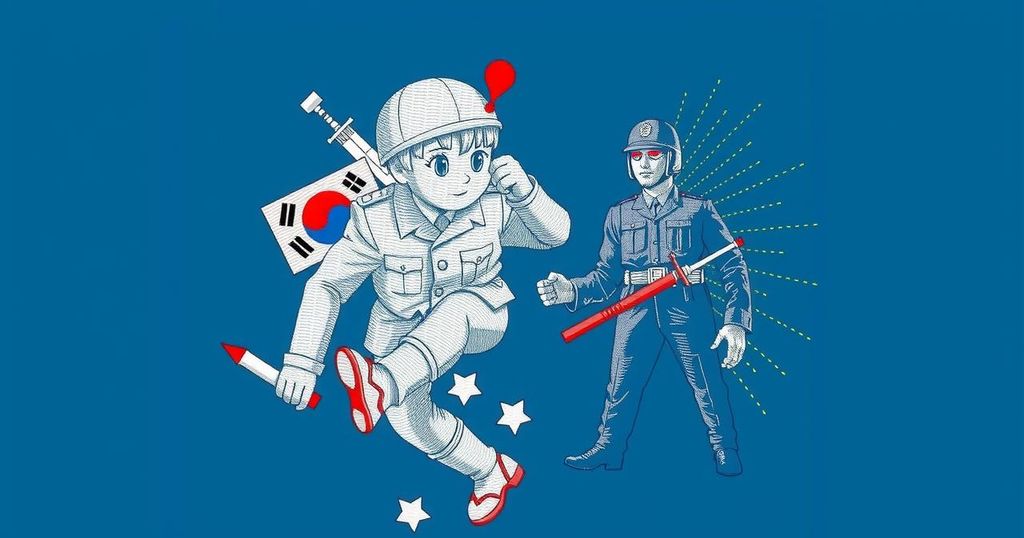
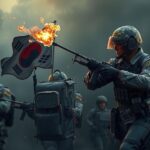
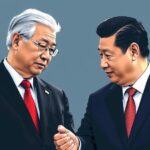
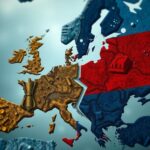



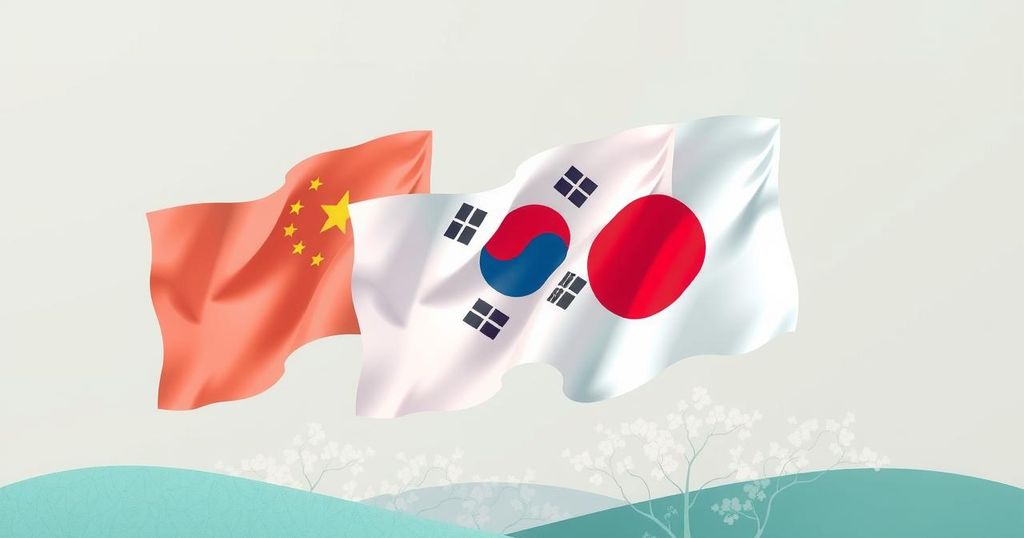
Post Comment